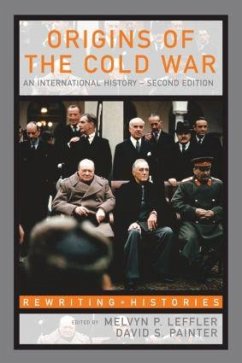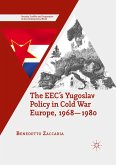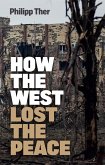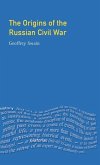Updated to include the latest debates and newest research, this second edition of a successful book brings together a truly international collection of articles and provides a fresh and thorough analysis of the origins of the Cold War that dominated the world political arena for forty-five years. The articles consider how and why the Cold War spread from Europe to Asia, Africa, the Middle East and Latin America and how groups, classes and elites used it to further their own interests. "The Origins of the Cold War" also examines the Communist side of the war and, concentrating on culture, race and intelligence, moves beyond earlier controversies and focuses on the interaction between: * geopolitics and threat perception * technology and strategy * idealology and social reconstruction * national economic reform and patterns of international trade * decolonization and national liberation. With a guide to further reading and a brand new section dealing with the Cold War crises in Iran, Turkey and Greece, "The Origins of the Cold War "has brought the Cold War bang up to date for today's students and scholars.
The Cold War dominated the world political arena for forty-five years. Focusing on the international system and on events in all parts of the globe, Melvyn P. Leffler and David S. Painter have brought together a truly international collection of articles that provide a fresh and comprehensive analysis of the origins of the Cold War.
Moving beyond earlier controversies, this edited collection focuses on the interaction between geopolitics and threat perception, technology and strategy, ideology and social reconstruction, national economic reform and patterns of international trade, and decolonization and national liberation. The editors also consider how and why the Cold War spread from Europe to Asia, Africa, the Middle East and Latin America and how groups, classes and elites used the Cold War to further their own interests.
This second edition includes the newest research from the Communist side of the Cold War and the most recent debates on culture, race and the role of intelligence analysis. Also included is a completely new section dealing with the Cold War crises in Iran, Turkey and Greece and a guide to further reading.
Hinweis: Dieser Artikel kann nur an eine deutsche Lieferadresse ausgeliefert werden.
The Cold War dominated the world political arena for forty-five years. Focusing on the international system and on events in all parts of the globe, Melvyn P. Leffler and David S. Painter have brought together a truly international collection of articles that provide a fresh and comprehensive analysis of the origins of the Cold War.
Moving beyond earlier controversies, this edited collection focuses on the interaction between geopolitics and threat perception, technology and strategy, ideology and social reconstruction, national economic reform and patterns of international trade, and decolonization and national liberation. The editors also consider how and why the Cold War spread from Europe to Asia, Africa, the Middle East and Latin America and how groups, classes and elites used the Cold War to further their own interests.
This second edition includes the newest research from the Communist side of the Cold War and the most recent debates on culture, race and the role of intelligence analysis. Also included is a completely new section dealing with the Cold War crises in Iran, Turkey and Greece and a guide to further reading.
Hinweis: Dieser Artikel kann nur an eine deutsche Lieferadresse ausgeliefert werden.
'An excellent collection, which offers works with which students would be unfamiliar. The articles demonstrate a real commitment to international history.' - Robert L. Beisner, The American University, Washington DC
'A fresh collection of stimulating and impressive essays. This book will be of great value not only to students of the subject but to those teaching.' - John A. Thompson, University of Cambridge
'A fresh collection of stimulating and impressive essays. This book will be of great value not only to students of the subject but to those teaching.' - John A. Thompson, University of Cambridge








